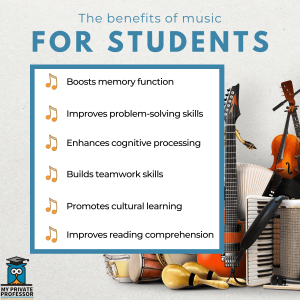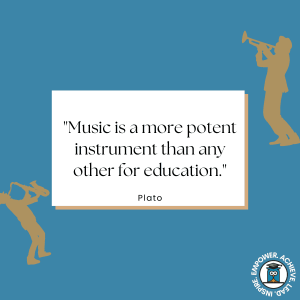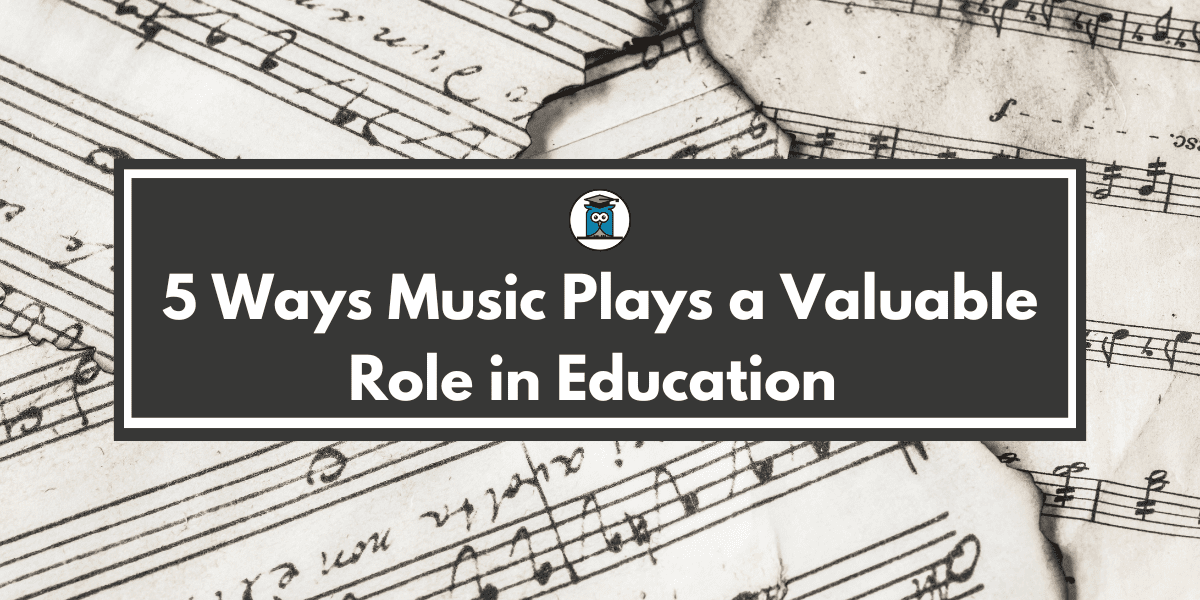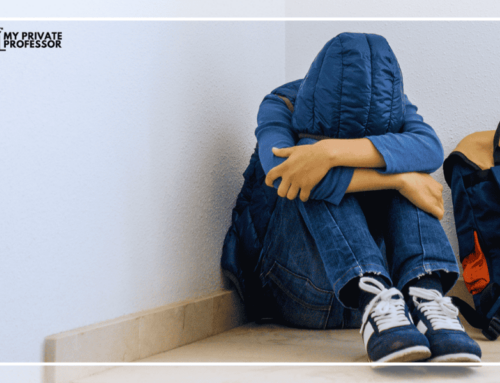While you and your friends might have completely different music preferences, there’s one thing you probably have in common: music can ignite strong responses in all of you.
It’s pretty much universal that this art form is capable of powerfully influencing your thoughts, feelings, and general mood.
We’ve all experienced it—that one song comes on and suddenly, you’re brought back to your first time sledding on a snow day. Or the hot, sticky camp bus. 
Essentially, music can evoke memories, which in turn, brings out certain emotions. This is basic psychology. When music induces memories and emotions, you’re experiencing classical conditioning.
Music elicits implicit memories—those that are unconscious and automatic. Through your implicit memory, an event and/or emotion becomes attached to a song (and thus, you are conditioned to associate the song with the emotion).
So what does this have to do with education?
Although it may come as a surprise, not listening to music while studying may actually be holding you back!
Its connection with memory is just one of the many ways in which music can be valuable in education.
1. Memory benefits
If you’re looking to elevate your study game, it’s time to try adding some chords and melodies into the mix. Music actually activates both sides of your brain—and in turn, improves your memory.
Maybe you’ve heard of this theory, but haven’t understood how it works. The phenomenon involves music, emotion, and memory. Petr Janata conducted two studies which epitomize the effect of music on memory.
In both studies, he determined that music, memory, and emotions are strongly linked—and particularly, that music functions “as a potent trigger for retrieving memories.” The takeaway was supporting evidence that listening to music while studying can be very beneficial. That is, you can listen to certain music when studying—and then if their teacher allows it, you can listen to the same music during an exam. And the idea here is that you’ll be more able to retrieve the necessary information to complete your exam.
This may be particularly true for auditory learners, who essentially learn best through listening.
Harvard researchers have also determined that music and memory are linked. They demonstrated that singing to patients recovering from a brain injury or stroke (that affected the left-brain region, responsible for speech) is helpful. The reason for this is that singing takes place on the right side of the brain—so people can gradually learn to speak through song before transitioning to full-on speaking.
Furthermore, there may be a relationship between classical music, specifically, and memory benefits. In a 2014 study, researchers found that adults who listened to classical music performed better on memory and processing tasks.
2. Cognitive processing & problem-solving skills
Not only can music improve your memory, but it can actually alter your brain’s functions.
One way we can see the difference between musician and non-musician brains is by looking at the specific regions. For instance, one study found that musicians who began training at approximately seven-years-old have a significantly larger corpus callosum than musicians who began training later and than non-musicians.
Furthermore, this is notable because the corpus callosum plays a vital role in complex brain functioning—such as vision and eye movement, attention and arousal regulation, and depth perception.
Musicians regularly strengthen this organ; as a result, they sharpen their problem-solving skills.
In a recent study, researchers compared the neural connectivity in brains of musicians and non-musicians. Neural connectivity is essentially the way in which different neurons in the brain connect to one another. The researchers determined that musicians have higher neural connectivity than non-musicians in the default mode network, which is active when you’re not focusing on what’s happening around you.
So what does this mean? The implications are important. The connections in the default mode network play a critical role in higher cognitive processes, which are those that require extreme brain activity—for instance, making important decisions or solving major problems.
3. Teamwork & collaboration skills
In addition to benefits related to brain functions, music offers social benefits related education—specifically, involving collaboration. If you’re in a music class (with other students), you’re bound to work together with your fellow musicians. Actually, you’re usually required to do so!
When you play instruments together, over time, you develop better listening and teamwork skills. The art is often, in itself, collaborative—you must complete collective tasks around rhythms, melodic notations, and beats. And you must learn together to work through conflict, confusion, and doubts.
The collaborative skills you can gain by participating in music classes/practice are critical; in fact, a 2021 survey from 171 participants demonstrated that collaborative learning is a significant predictor of learning satisfaction.
4. Cultural awareness
Music is also a tool that can encourage cultural diversity and awareness. That is, music can open the doors for students to learn about music from different cultures.
When children learn, from an early age, to appreciate different perspectives, traditions, and histories, they’re more inclined to be tolerant of different ways of thinking.
In fact, research has demonstrated that students work better when in a diverse environment. And this doesn’t only mean when there is diversity among students—it means that, when exposed to diversity (for instance, songs from different ethnicities & cultures), students work better.
Essentially, developing a classroom that encourages diversity encourages students to be accepting in a world that continues to grow more and more diverse.
5. Reading comprehension & vocabulary
For lots of students, building reading and vocabulary skills is an uphill battle. I’m sure you can see where this is going.
And you’d probably be right—I’m going to tell you that music can, in fact, help improve reading comprehension and vocabulary skills!
Just looking at the fundamentals of reading comprehension, it’s not too difficult to see how music may help. First, you’re often required to read out loud in the classroom. And music is a great way to help students master this.
Singers often draw words out slowly, allowing students to clearly hear words and instill them into their brains. Plus, it’s hard to avoid singing along to a catchy song—so music provides the opportunity to practice saying words out loud.
So there you have it! Next time you’re thinking about new strategies for tackling your homework, consider utilizing the power in music.
Author: Lydia Schapiro







